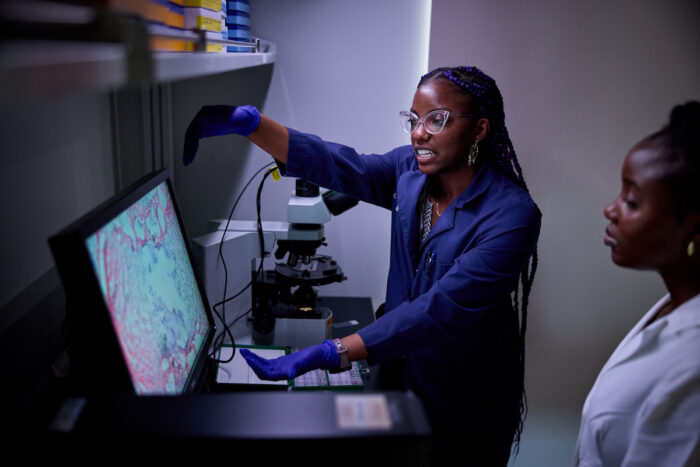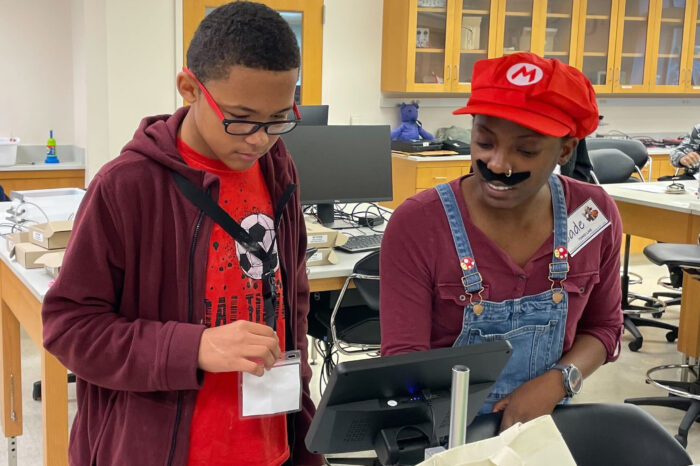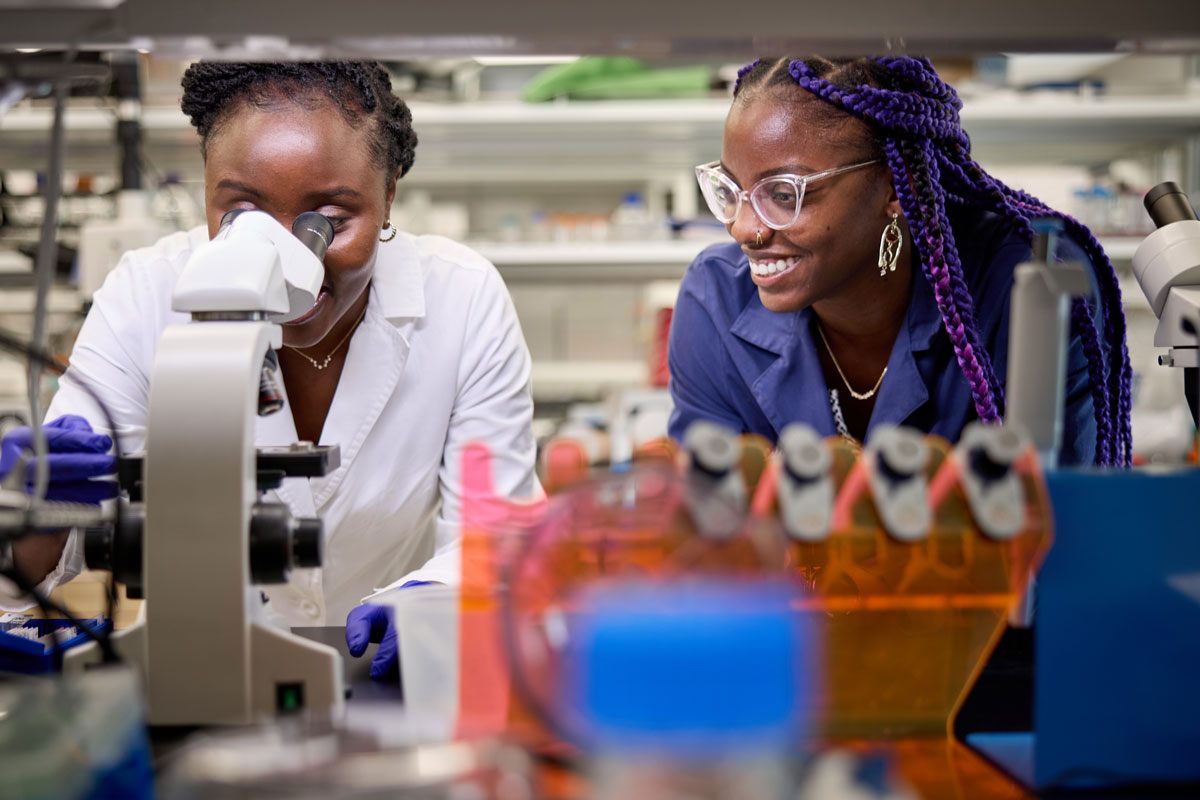Passion to help other postdocs drives Sade Williams Clayton to promote inclusivity
Scientist recognized by National Postdoctoral Association for commitment to community service, outreach
 Matt Miller
Matt MillerSade Williams Clayton, PhD (left), a postdoctoral research scholar at Washington University in St. Louis, reviews microscopy slides with her mentee Laura Mpofu, a graduating senior at Washington University.
The sprawling, rural landscape of Girard, Ga. – population 202 – offered young Sade Williams Clayton free range to play. Meanwhile, the tight-knit community brought her a sense of comfort and belonging.
But her small-town upbringing didn’t prepare her for the roughly 22,500 undergraduate students she would be surrounded by at the University of Georgia in Athens, Ga. When culture shock challenged her, support and kindness from a mentor launched her on a fulfilling scientific career path. Now, as a successful scientist working at a leading research institution, she creates opportunities to help others.
For her work advocating and building community for postdoctoral research trainees, Clayton, PhD, a postdoctoral research scholar at Washington University in St. Louis, received the inaugural National Postdoc of the Year Award from the National Postdoctoral Association (NPA). The award is one of three top honors the NPA bestows.
“I’m thankful that the NPA is setting a precedent to communicate that the advocacy and outreach work that postdocs do to better the academic community is important,” Clayton said. “To have the service work that defines who I am as a person affirmed and congratulated is rewarding. I’m humbled that I was selected as the award’s first recipient.”
Together with postdoc Valene Garr-Barry, she created the Washington University Black Postdoctoral Association (WUSTLBPA), a group that collaborates with the larger Washington University Postdoc Society. WUSTLBPA works to provide visibility, inclusivity and unity for its members and their allies. It also offers career-development training and peer-to-peer mentorship. Because postdocs tend to be more comfortable confiding in each other, such a group allows them to share struggles, learn about available resources and create solutions when support is lacking, Clayton explained — especially for the international postdocs who face additional challenges. International postdocs make up 70% of Washington University’s postdocs.
Clayton joined Washington University to work with Simon Tang, PhD, an associate professor of orthopedic surgery, and Lori Setton, PhD, the Lucy and Stanley Lopata Distinguished Professor and chair of the Department of Biomedical Engineering. Interested in regenerative medicine, Clayton works to understand spine degeneration – a process that leads to loss of the spine’s structure and function, and is responsible for back and neck pain. As a graduate student at the University of Alabama at Birmingham in Birmingham, Ala., she studied the role of a signaling molecule – transforming growth factor-β (TGF-β) – in spine formation.
Clayton thrives on sharing her passion for developmental biology with budding scientists. Through science outreach opportunities offered at Washington University in collaboration with different organizations in the St. Louis community, Clayton helps to provide middle and high school students access to hands-on science. They build model spines and apply compressive loads to learn how the spine reacts to such loads when injured.
 Simon Tang
Simon TangClayton’s small-town upbringing didn’t afford access to hands-on science experiences. Her parents weren’t scientists and didn’t know any. Instead, her curiosity and hard work led her to mentors such as Scott T. Dougan, PhD, as associate professor of cellular biology at the University of Georgia, whose developmental biology course inspired Clayton’s interest in cell biology. His support empowered her to change her major to cell biology, from biochemistry, late in college.
“My scientific trajectory involved a lot of meandering and some wrong turns,” she said. “Supportive mentors saw the potential in my curiosity and passion. That support has been instrumental to my personal and scientific growth.”
Now, Clayton is inspired and determined to help others find their purpose. She has made it a priority to be a supportive presence in a world that is often divided, she explained.
“I’m fortunate to be in a position to make some change,” said Clayton, who is pursuing a tenure-track faculty position that will value service, outreach and teaching. “It’s important to advocate for others. A small change can change somebody’s life. That’s big to me.”
 Matt Miller
Matt Miller






